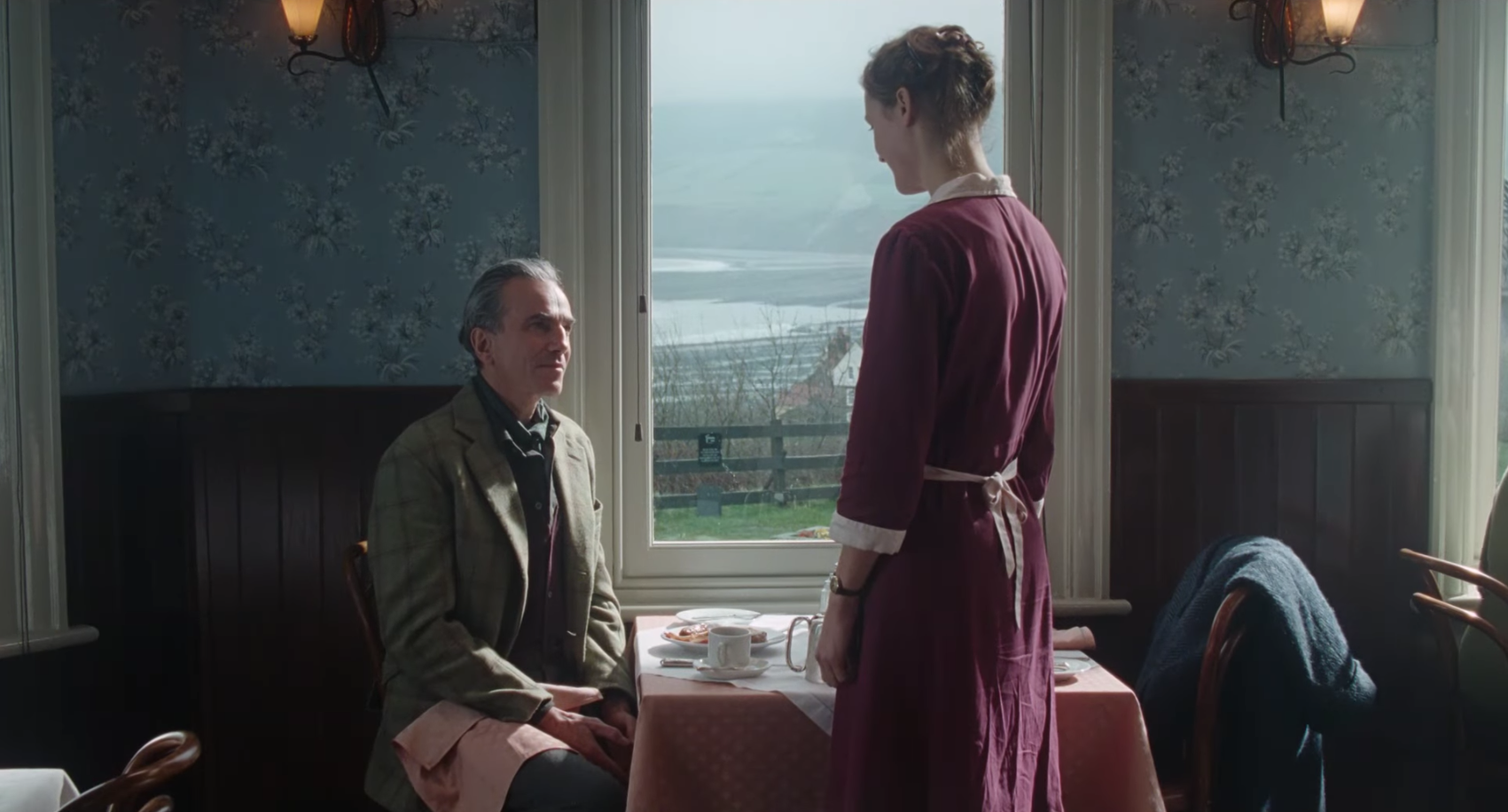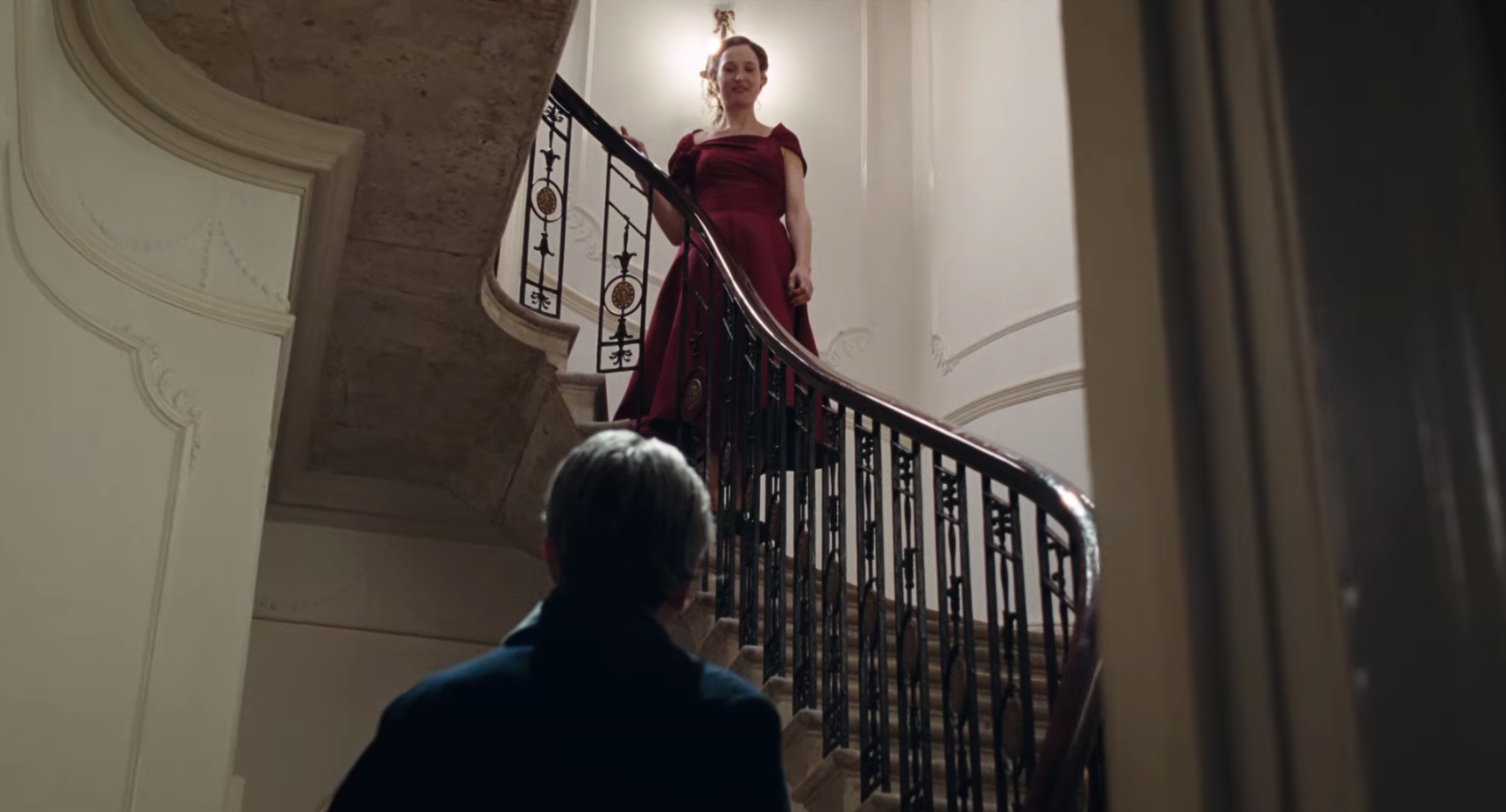Phantom Thread: Love and Desire
Spoiler Alert: this post is about the film Phantom Thread, and contains important plot points from it.
“When you love, how does it feel? And when you desire, how is it different?” - Esther Perel
Phantom Thread is a film about the relationship between Reynolds Woodcock, an English couture dressmaker from the 1950’s, and Alma, his most recent romantic interest. The film begins with the world that Reynolds inhabits- one where he is the center of attention of many women, and where his attention is solely focused on his work. Reynolds is a man of particular habits- ones that Alma will later describe as “fussy”- and has a sensitive relationship with his work, which he connects to his childhood and his mother.
When Alma first appears, she is a waitress at a countryside restaurant. They circle one another with wandering eyes, and Reynolds asks her to dinner.
Alma experiences many of Reynold’s peculiarities right away: from his fixation on his deceased mother, his sister’s inattention to privacy, and Reynold’s singular focus on dress-making. However, during the series of uncomfortable interactions, it is revealed that she does not think much of herself, but Reynolds finds her to be perfect.

Over time, she begins to discover more about their relationship, as well as Reynold’s lifestyle. She loves his attention at first, her eyes following him as he organizes little details in the fabric as he dresses her like a doll. But then, she begins to feel more and more like a doll, a disposable object, a lifeless toy that can be cast into a corner without a second thought. Reynolds is surrounded by fawning women, and Alma begins to experience a growing jealousy from within her. His peculiar nature is undirected, but distant, and almost feels spiteful.
She discovers that he is weak after exhausting himself with his passion for dressmaking, and that he needs her most in his weakness. After an argument over dinner, she decides to poison Reynolds with a concoction of mushrooms in tea. He falls ill over the next day. After she nurses him back to health, he realizes that he is missing something from a shared life, and asks her to marry him in the morning.
What follows is an account of Reynold’s distaste for her habits and his cruel lashing as he begins to experience jealousy himself. The story ends with a repeating cycle of Alma’s poisoning and nursing Reynolds back to health- the two of them knowing that they will come back to each other when they are weak.

How do you reconcile the opposing needs of love and desire? This crisis is at the center of modern relationships and comes from our demand for both within a single relationship. Psychotherapist Esther Perel says that we want the security and stability of a committed relationship, but also the adventure of desire. Desire, which is sustained by mystery and discovery, opposes the quality of immutability in a committed relationship. And it is from these opposing forces that we see the characters of Phantom Thread struggle.
Their jealousy, which ebbs and flows over the course of their relationship, is one of the more tangible forms of desire that we witness. Whenever Reynolds loses himself in his work, Alma feels a growing distance, and whenever Alma acts in a way that Reynolds does not anticipate, he feels unwanted. However, this is something that he understands about himself, whether or not he has control over it. “Marriage would make me deceitful, and I don’t ever want that”, he says. When Alma asks him more about it, he explains that expectations of others is dangerous, and results in a loss of control.

Expectations can make you deceitful because you will try to push someone toward the mold you have created for them without realizing it, simply because you expect certain behavior. It is in the nature of expectation that this occurs, because we are limited in how we understand anything outside of ourselves, yet love pushes us to try to understand. We can develop some reasonable level of understanding, but to completely understand another person is impossible. When there is no end to the nuances in your own behavior, how can you expect to fully understand another’s?
Alma acts on her jealousy by poisoning Reynolds, physically forcing him to need her. “I want you flat on your back. Helpless, tender, open with only me to help,” she says. His poison, on the other hand, is in the flailing anger in his words, and the cold disposition he applies toward her. They both carry the same need of being needed, and frivolousness with the love of the other. And in their inability to use words to express these things, a pattern emerges- a cycle of love and desire, of needing and being needed.
It is perhaps in recognizing this cycle that their relationship begins to flourish.
A friend of mine read tarot cards for me a few weeks back while she visited from Germany. One of the cards she drew was called the “Wheel of Fortune”, which contained a picture of a wheel with entities moving up one side and down the other. The meaning, she explained, was that by recognizing the cyclical nature of things, we can can take more control over our fates. When you are at the bottom of the wheel- at the low points in life- by remembering that it is part of a larger cycle, the virtue of patience can remind you to endure the bad and continue your search for the good.
These cycles do not only occur within relationships of course, and Alma even says, “being in love with him makes life no great mystery.” Perhaps it is in recognizing the ups and downs, and in accepting that we cannot fully understand others, that we can build meaningful relationships where we can love, change, desire, and share a life with another person.
